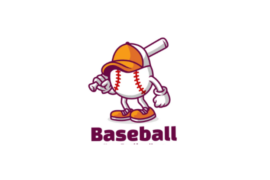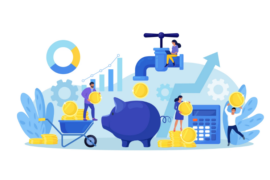Donors play a pivotal role in the success of any charitable organization, and their support is often the lifeblood that fuels impactful initiatives. Acknowledging their contributions with Donor Management Software not only fosters a sense of appreciation but also establishes a strong foundation for long-term relationships. Gratitude transcends mere courtesy; it is a powerful tool that can inspire loyalty, encourage continued support, and create a positive reputation for the organization.
Introduction to Donor Management Software (DMS)
In the digital age, where data management is crucial, organizations are increasingly turning to sophisticated tools to streamline their processes. Enter Donor Management Software (DMS), a technological solution designed to revolutionize how nonprofits interact with their donors. DMS serves as a comprehensive platform that enables organizations to efficiently organize, track, and manage their donor-related activities. From maintaining donor profiles to monitoring contributions and interactions, DMS empowers organizations to navigate the complex landscape of donor relations with ease.
The Significance of Expressing Gratitude
Building a connection that goes beyond transactional interactions lays the foundation for a sustained and meaningful partnership. Expressing gratitude becomes the cornerstone of this relationship-building process, as it conveys genuine appreciation for the potential donor’s consideration and support.
When organizations prioritize the establishment of strong relationships, they create an environment where potential donors feel valued and recognized. This emotional connection transcends the mere act of giving, fostering a sense of belonging and shared purpose. As potential donors become more engaged with the organization on a personal level, they are more likely to convert their initial interest into committed support.
Impact of appreciation on donor retention and future contributions
The ripple effects of expressing gratitude extend far beyond the immediate acknowledgment of a donation. Appreciation plays a pivotal role in donor retention, influencing whether a supporter chooses to continue their engagement with the organization. Donors who feel genuinely appreciated are more likely to stay committed over the long term, contributing to the sustainability of the organization’s initiatives.
Furthermore, the act of expressing gratitude serves as a catalyst for future contributions. When potential donors witness the tangible impact of their support and feel a sense of acknowledgment, they are motivated to deepen their involvement. This can manifest in increased donation amounts, more frequent contributions, or even advocacy on behalf of the organization within their social circles.
Understanding Donor Management Software
Donor Management Software (DMS) is a comprehensive technological solution designed to streamline and enhance the way nonprofit organizations manage their interactions with donors. At its core, DMS serves as a centralized hub for storing, organizing, and analyzing donor-related data. It goes beyond traditional record-keeping, providing a dynamic platform that allows organizations to effectively track and manage their relationships with donors.
The functionalities of Donor Management Software encompass a wide array of tasks, including but not limited to:
- Donor Profiling: Creating and maintaining detailed profiles of donors, capturing essential information such as contact details, giving history, and communication preferences.
- Gift Processing: Managing and tracking financial contributions, including online donations, checks, and in-kind gifts, ensuring accuracy and transparency in financial transactions.
- Communication Management: Facilitating personalized and targeted communication with donors through features like email campaigns, newsletters, and event invitations.
- Reporting and Analytics: Providing robust reporting tools that enable organizations to analyze donor behavior, measure the effectiveness of campaigns, and make data-driven decisions.
- Event and Campaign Management: Assisting in the planning, execution, and evaluation of fundraising events and campaigns, optimizing engagement and outreach strategies.
Key features and benefits
Key features of Donor Management Software include:
- User-friendly Interface: Intuitive interfaces make it easy for organizations to navigate and utilize the software effectively, even for users with varying levels of technical expertise.
- Automation: Streamlining manual processes through automation, saving time and resources while minimizing the risk of errors in data entry and management.
- Security Measures: Implementing robust security measures to protect sensitive donor information and maintain compliance with data protection regulations.
- Integration Capabilities: Allowing seamless integration with other tools and platforms, such as CRM systems, payment gateways, and marketing tools, to create a cohesive and efficient workflow.
- Scalability: Adapting to the evolving needs of organizations, whether they are small grassroots initiatives or large-scale nonprofits with expansive donor databases.
Relevance of DMS in the context of donor appreciation
In the context of donor appreciation, the relevance of Donor Management Software becomes evident in its ability to enhance the overall donor experience. By centralizing donor data and interactions, DMS enables organizations to create highly personalized and targeted expressions of gratitude. Whether it’s sending automated thank-you emails after a donation or tailoring communication based on a donor’s history and preferences, DMS facilitates a more thoughtful and strategic approach to donor appreciation.
Moreover, the data analytics capabilities of DMS empower organizations to gain insights into donor behavior, preferences, and engagement patterns. This information becomes invaluable in crafting appreciation strategies that resonate with donors on a personal level, fostering a deeper connection and sense of belonging.
Streamlining Thank-You Processes with DMS
One of the most compelling features of Donor Management Software (DMS) is its capacity to automate personalized thank-you messages. Traditionally, organizations faced the challenge of manually crafting and sending acknowledgments, a time-consuming process prone to oversights. With DMS, this task is streamlined, allowing nonprofits to send immediate, customized thank-you messages to donors.
The automation process is not merely a matter of efficiency; it adds a layer of personalization that resonates with donors. DMS can be programmed to incorporate specific details such as the donation amount, the purpose of the contribution, and even the impact of the donation. This level of personalization not only expresses gratitude but also reinforces the idea that each contribution, regardless of size, is valued and impactful.
Tracking and managing donor interactions efficiently
Efficiency in tracking and managing donor interactions is a pivotal aspect of successful donor appreciation, and DMS excels in this regard. The software provides a centralized repository for all donor-related activities, ensuring that organizations have a comprehensive view of their interactions with each supporter. From phone calls and emails to event attendance and social media engagement, DMS captures a holistic picture of donor engagement.
By having a consolidated record of interactions, organizations can tailor their appreciation strategies based on a donor’s engagement history. This not only avoids redundancy in communication but also allows nonprofits to acknowledge specific contributions or actions that have had a significant impact. For instance, if a donor consistently supports a particular program or attends events, DMS enables organizations to highlight and appreciate these specific aspects, reinforcing the personalized connection.
Customizing acknowledgments based on donor preferences
Donors are individuals with unique preferences and motivations for supporting a cause. Recognizing and customizing acknowledgments based on these preferences is a powerful way to enhance the donor experience, and DMS plays a pivotal role in facilitating this customization. The software allows organizations to capture and store donor preferences, such as communication channels, frequency of updates, and areas of interest.
By leveraging this information, organizations can tailor their thank-you messages to align with the preferences of each donor. Whether it’s a preference for email communication, updates on specific projects, or acknowledgment through personalized video messages, DMS empowers organizations to go beyond generic expressions of gratitude. This level of customization not only demonstrates attentiveness but also contributes to a positive and personalized donor experience, fostering a deeper connection between the donor and the organization.

Integrating DMS into Your Fundraising Strategy
The successful integration of Donor Management Software (DMS) into an organization’s fundraising strategy requires a thoughtful and strategic approach. Here are some tips for seamlessly incorporating DMS into existing processes:
- Conduct a Needs Assessment: Begin by assessing the specific needs and challenges of your organization. Identify areas in the fundraising process where DMS can provide the most significant impact, such as donor communication, event management, or data analysis.
- Define Clear Objectives: Clearly define the objectives you aim to achieve through DMS integration. Whether it’s improving donor relations, increasing efficiency in campaign management, or enhancing data accuracy, having well-defined goals will guide the implementation process.
- Choose the Right DMS Solution: Select a DMS solution that aligns with the unique requirements of your organization. Consider factors such as user-friendliness, scalability, and integration capabilities to ensure a seamless fit with your existing fundraising infrastructure.
- Training and Onboarding: Provide comprehensive training to staff involved in fundraising activities. Ensure that team members understand the functionalities of the DMS and how it integrates into their daily workflows. Offer ongoing support to address any challenges or questions that may arise.
- Customization for Your Organization: Tailor the DMS to suit the specific needs and branding of your organization. Customize donor communication templates, reporting formats, and data fields to align with your organizational identity and goals.
- Integration with Other Tools: Ensure that the DMS seamlessly integrates with other tools and platforms your organization utilizes, such as CRM systems, email marketing tools, and financial software. This integration promotes a cohesive and efficient workflow.
Training staff for optimal utilization of DMS capabilities
The successful adoption of Donor Management Software (DMS) relies heavily on the proficiency of the staff using it. Here are key strategies for training staff for optimal utilization of DMS capabilities:
- Comprehensive Training Programs: Develop comprehensive training programs that cover all aspects of the DMS, from basic functionalities to advanced features. This can include in-person training sessions, online tutorials, and documentation for reference.
- Role-Specific Training: Tailor training sessions based on the roles and responsibilities of staff members. Different teams within the organization may use DMS for distinct purposes, so ensuring that training is relevant to each role enhances overall proficiency.
- Hands-On Workshops: Organize hands-on workshops where staff can actively engage with the DMS in a simulated environment. Practical experience enhances understanding and retention, allowing staff to feel more confident in utilizing the software.
- Continuous Learning Opportunities: DMS capabilities may evolve over time with updates and new features. Establish a culture of continuous learning by providing ongoing training opportunities. This can include regular refresher courses, webinars, and access to support resources.
- User Support Resources: Create a repository of user support resources, such as FAQs, user guides, and troubleshooting documents. Having readily available resources empowers staff to address issues independently and fosters a sense of self-sufficiency.
- Feedback Mechanism: Establish a feedback mechanism where staff can share their experiences, challenges, and suggestions regarding the use of DMS. This feedback loop not only improves the training process but also helps in identifying areas for software improvement.
Ensuring data accuracy and security in donor information
Maintaining data accuracy and security is paramount when utilizing Donor Management Software (DMS) to manage donor information. Here are key measures to ensure data accuracy and security:
- Data Validation Protocols: Implement robust data validation protocols to ensure that accurate and consistent information is entered into the DMS. This includes validation checks for donor contact details, donation amounts, and other critical data points.
- Regular Data Audits: Conduct regular audits of donor data to identify and rectify any inconsistencies or errors. This proactive approach helps in maintaining the integrity of the data and ensures that the organization is working with reliable information.
- User Permissions and Access Control: Define and enforce strict user permissions and access controls within the DMS. Limit access to sensitive donor information only to authorized personnel, reducing the risk of unauthorized data modifications or breaches.
- Encryption Practices: Employ encryption techniques to safeguard donor data during transmission and storage. Encryption adds an additional layer of protection, making it more challenging for unauthorized entities to access sensitive information.
- Regular Software Updates: Stay current with software updates and patches provided by the DMS provider. These updates often include security enhancements and bug fixes, addressing potential vulnerabilities and ensuring a secure environment for donor data.
- Backup Procedures: Establish regular backup procedures to create copies of donor data. In the event of data loss due to unforeseen circumstances, having up-to-date backups ensures that the organization can quickly recover and minimize the impact on donor relations.
- Compliance with Data Protection Laws: Stay informed and compliant with data protection laws and regulations relevant to your geographical location, such as Canada’s Personal Information Protection and Electronic Documents Act (PIPEDA). Adhering to legal requirements helps in building trust with donors and mitigates legal risks.
Challenges and Solutions
Implementing Donor Management Software (DMS) for donor appreciation, while highly beneficial, comes with its set of challenges. Understanding and addressing these challenges is crucial for maximizing the effectiveness of DMS. Common challenges include:
- Resistance to Change: Staff members may resist adopting new technologies or changing established processes. This resistance can hinder the successful implementation of DMS for donor appreciation.
- Data Migration Issues: Transitioning from existing systems to a new DMS may pose challenges related to data migration. Inaccuracies or data loss during migration can impact the reliability of donor information.
- Lack of Training: Inadequate training for staff members can lead to underutilization of DMS capabilities. Without proper training, organizations may fail to leverage the full potential of the software for donor appreciation.
- Integration Complexity: Integrating DMS with other existing tools and systems can be complex. Compatibility issues may arise, affecting the seamless flow of information and communication between platforms.
- Limited Customization: Some DMS solutions may have limitations in terms of customization, hindering organizations from tailoring the software to align with their unique donor appreciation strategies.
Strategies to overcome potential obstacles
To overcome the challenges associated with implementing DMS for donor appreciation, organizations can employ effective strategies:
- Change Management Strategies: Implement robust change management strategies to address resistance. Clearly communicate the benefits of DMS, involve staff in the decision-making process, and highlight success stories from organizations that have successfully adopted similar technologies.
- Thorough Data Migration Planning: Prioritize thorough planning and testing during the data migration process. Conduct extensive data validation checks to ensure accuracy, and have contingency plans in place to address any unexpected issues.
- Comprehensive Training Programs: Invest in comprehensive training programs for staff members at all levels. Provide hands-on training sessions, workshops, and continuous learning opportunities to ensure that staff feel confident and competent in using the DMS for donor appreciation.
- Collaborative Implementation Teams: Form collaborative implementation teams comprising staff members from various departments. This interdisciplinary approach ensures that the implementation process considers the diverse needs and perspectives within the organization.
- Engage DMS Providers: Collaborate closely with DMS providers throughout the implementation process. Seek their expertise for addressing integration challenges, customization needs, and any technical issues that may arise.
- Regular System Audits: Conduct regular audits of the DMS to identify and address any issues related to data accuracy, system performance, or security. Proactive monitoring ensures that potential challenges are identified and resolved promptly.
- Flexibility and Scalability: Choose a DMS solution that offers flexibility and scalability to accommodate the evolving needs of the organization. A scalable solution allows for adjustments as the organization grows, preventing limitations in customization and functionality.
- Continuous Improvement: Establish a culture of continuous improvement by gathering feedback from staff members and donors. Use this feedback to make necessary adjustments to the DMS implementation, ensuring that it aligns with the evolving needs and expectations of the organization.

Future Trends in Donor Management
The landscape of donor management is dynamic, continually evolving to meet the changing needs of nonprofit organizations and their supporters. Exploring emerging technologies and trends in donor management provides valuable insights into the future of fundraising. Some notable trends include:
- Artificial Intelligence (AI) and Machine Learning: The integration of AI and machine learning in donor management is on the rise. These technologies enable organizations to analyze vast amounts of data, predict donor behavior, and personalize communication strategies, enhancing the overall donor experience.
- Blockchain Technology: Blockchain is gaining attention for its potential to enhance transparency and security in financial transactions. It could revolutionize how organizations track and verify donations, providing donors with a transparent view of how their contributions are utilized.
- Mobile Fundraising Apps: The increasing reliance on mobile devices has led to the rise of mobile fundraising apps. These apps offer convenient ways for donors to contribute, stay engaged, and receive real-time updates on organizational activities.
- Social Media Integration: Social media platforms play a crucial role in donor engagement. Future trends involve deepening integration with social media, allowing organizations to leverage these platforms for fundraising campaigns, donor outreach, and storytelling.
- Predictive Analytics: Predictive analytics use data and statistical algorithms to identify patterns and predict future outcomes. In donor management, this can be applied to anticipate donor behavior, identify potential major donors, and optimize fundraising strategies.
Anticipated advancements that can further enhance the donor appreciation process
As donor management continues to evolve, anticipated advancements hold the potential to further enhance the donor appreciation process:
- Hyper-Personalization: Advanced personalization techniques, fueled by AI, will allow organizations to create hyper-personalized donor experiences. From tailored communication to personalized acknowledgment strategies, donors will feel more connected and valued.
- Virtual and Augmented Reality Experiences: The integration of virtual and augmented reality in donor management could revolutionize how organizations showcase their impact. Donors may experience virtual tours of project sites or witness the direct effects of their contributions, creating a more immersive and emotionally resonant appreciation process.
- Real-Time Impact Reporting: Future advancements may bring real-time impact reporting, allowing donors to receive instant updates on the outcomes of their contributions. This level of transparency enhances trust and reinforces the tangible impact of donor support.
- Gamification for Engagement: Gamification elements, such as interactive challenges and rewards, could be incorporated into donor engagement strategies. This approach not only makes the donor experience more enjoyable but also encourages sustained involvement and contributions.
- Voice and Conversational Interfaces: With the rise of voice-activated devices, the incorporation of voice and conversational interfaces in donor management platforms may become more prevalent. Donors could interact with organizations, receive updates, and make contributions using voice commands.
- Biometric Authentication for Security: Enhanced security measures, such as biometric authentication, could become standard in donor management systems. This ensures the protection of sensitive donor information and adds an extra layer of security to financial transactions.
- Environmental, Social, and Governance (ESG) Integration: Donors are increasingly interested in aligning their contributions with ethical and sustainable practices. Future donor management systems may integrate ESG considerations, allowing donors to track the environmental and social impact of their support.
Conclusion
It is crucial to reinforce the paramount importance of donor gratitude in the context of successful fundraising. Donors are not just financial supporters; they are vital partners in the mission and vision of any organization. Expressing genuine gratitude goes beyond a transactional acknowledgment; it is the key to building lasting connections, inspiring loyalty, and fostering a community of dedicated supporters.
Are you ready to revolutionize your donor appreciation and fundraising strategies? Look no further than Werbylo, the free fundraising and charity app/software designed specifically for nonprofits. As you’ve explored the importance of expressing gratitude, the functionalities of Donor Management Software (DMS), and the future trends shaping donor relations, Werbylo stands out as a game-changer in this dynamic landscape.
- Unlock the Power of Werbylo: Sign up for Werbylo and unlock a world of possibilities for your nonprofit. Experience the user-friendly interface, customizable features, and the seamless integration that Werbylo offers to enhance your donor management and appreciation processes.
- Automate and Personalize Thank-You Messages: Leverage Werbylo’s intuitive automation tools to send personalized thank-you messages to your donors. Express your gratitude in a way that resonates with each supporter, creating a genuine and lasting connection.
- Streamline Your Fundraising Strategy: Seamlessly incorporate Werbylo into your existing fundraising processes. From event management to donor profiling, Werbylo provides the tools to streamline your operations and optimize your fundraising strategy.
- Training and Support: Benefit from Werbylo’s comprehensive training programs and ongoing support. Empower your staff with the knowledge and skills to make the most of Werbylo’s capabilities, ensuring a smooth and successful integration into your organization.
- Enhance Data Accuracy and Security: Werbylo prioritizes the security and accuracy of donor information. Explore the robust features that safeguard sensitive data, ensuring compliance with regulations and building trust with your donors.
- Stay Ahead of Future Trends: Werbylo is not just a solution for today; it’s a platform that evolves with future trends in donor management. Embrace the anticipated advancements in the fundraising landscape with a tool that keeps your organization at the forefront of innovation.
- Join the Werbylo Community: Become part of a community that shares your passion for making a difference. Connect with other nonprofits, share success stories, and learn from the experiences of organizations that have elevated their donor relations with Werbylo.
Don’t miss out on the opportunity to take your donor appreciation and fundraising to the next level. Sign up for Werbylo today and empower your organization to express gratitude, build lasting relationships, and create a positive impact on your mission. Your journey to effective and efficient donor relations starts with Werbylo – the key to unlocking a brighter future for your nonprofit.





